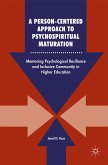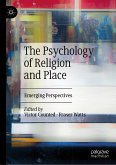Like cultural psychology, psychology of religion currently enjoys more and more interest and rapid growth. But the two fields have remained rather unconnected in the recent past. Psychological research on religion has been pursued from a number of perspectives, among which a cultural psychological one has not yet become prominent. As religions, however conceptualized, are cultural entities of major importance, cultural psychology seems a natural ally to research on religion. Containing a number of studies, both theoretical and empirical, this volume takes a step towards a rapprochement of cultural psychology and psychology of religion.
Having received several international awards and distinctions, Jacob A. Belzen is one of Europe's best-known psychologists of religion. As he has obtained doctorates in social science, history, philosophy and sciences of religion, his numerous publications are characterized by a strong interdisciplinary approach. He is a full professor at the University of Amsterdam (The Netherlands). He worked on this book while he was avisiting Fellow at Cambridge University (UK).
Dieser Download kann aus rechtlichen Gründen nur mit Rechnungsadresse in A, B, BG, CY, CZ, D, DK, EW, E, FIN, F, GR, HR, H, IRL, I, LT, L, LR, M, NL, PL, P, R, S, SLO, SK ausgeliefert werden.
"In just 237 pages of text, this book achieves these aims remarkably well and more. Much of the discussion is relevant to the whole field of psychology. ... In short, any graduate student in either cultural psychology or the psychology of religion needs to read this book. American psychologists will probably find diverse perspectives that are both provocative and engaging, both challenging and enlightening." (Lê X. Hy, PsycCRITIQUES, Vol. 56 (14), April, 2011)
"As the first introduction to contemporary cultural psychology of religion, this book will appeal especially to psychologists and psychiatrists, but also to any scholar interested in culture and conceiving of it as the critical ingredient to understanding an individual, a given society, and the role of religion in the life or lives studied. Belzen's repeated protestations that these aims are modest are countered by his trenchant literature review, which indicates that culture has at best been used as a variable among others in psychological research in the twentieth century; at worst culture has been completely ignored in favor of studies that aim for objective results, irrespective of cultural or individual idiosyncrasies. The monumentous review of literature in this work is as keen and probing as they come, which adds to the persuasiveness of Belzen's modest appeal to cultural psychology of religion, while at the same time making obvious how stacked the trends in literature are against such a "modest" appeal. Belzen's exposition is shrewd and creative in its ability to identify problems in psychology of religion, and how cultural psychology of religion can possibly solve them, but at this high price point and given the expansive literature review, it is meant for a well-informed and wealthy audience. This book is a must acquire, therefore, for any major university research library."(Joseph M. Kramp, John Jay College, CUNY)









